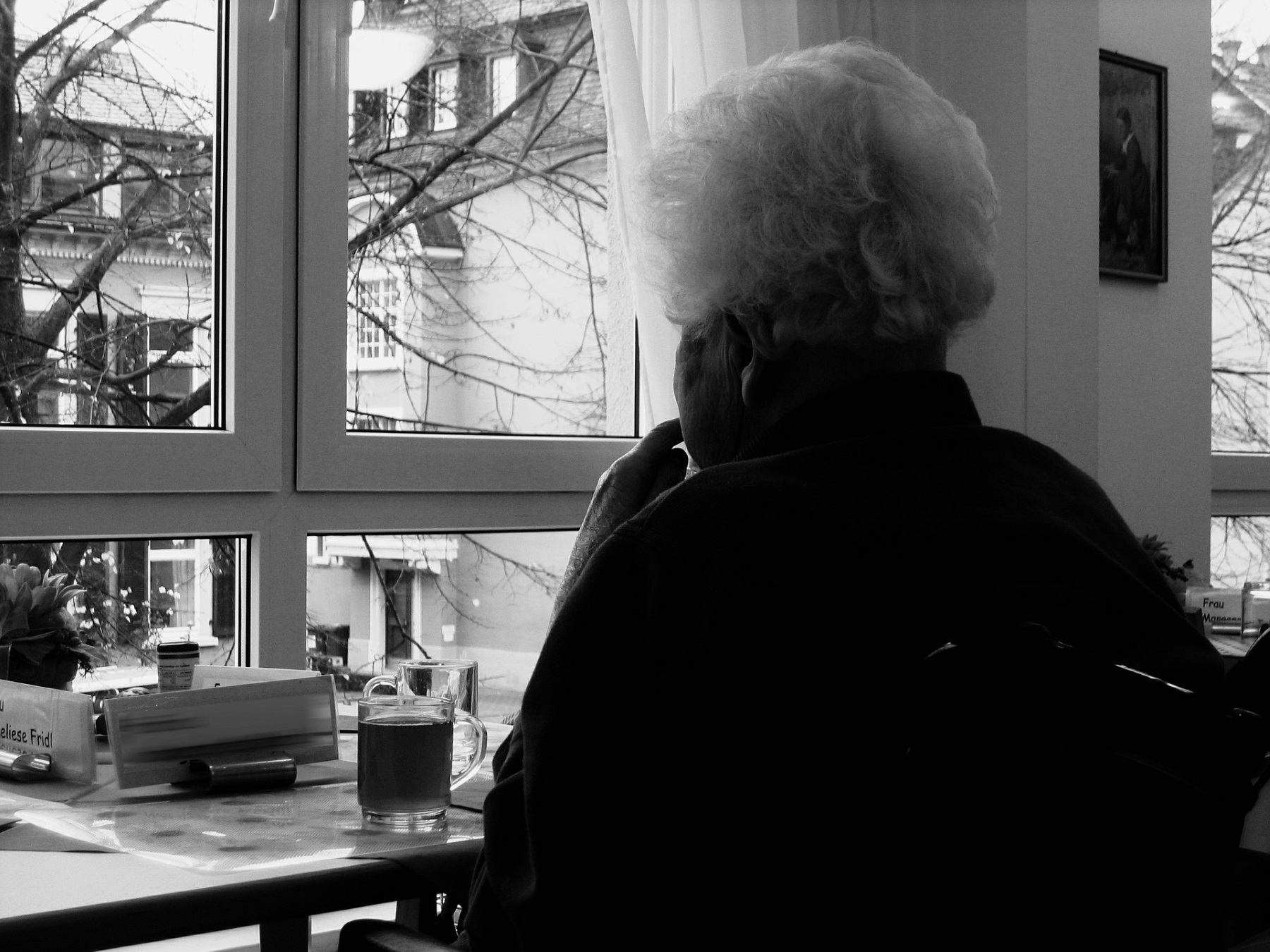Earlier this year, Georgia Health News reported on a “horrific” elder abuse case in Albany, Georgia, that led to the arrests of three people.
Victims living in unlicensed personal care homes were deprived of “health care, shelter and necessary sustenance” in addition to being exploited financially, Georgia Attorney General Chris Carr said in a news conference. The senior adults were later relocated to licensed facilities.
Like us on Facebook
Elder abuse charges have risen in Georgia since 2010, according to a June article by the Atlanta Journal-Constitution.
In recent years, Georgia’s elder abuse laws have become stricter and have expanded to include financial exploitation as a criminal offense, a Georgia Bureau of Investigation report shows.
What Is Elder Abuse?
Elder abuse includes physical, emotional, sexual and financial abuse, neglect and self-neglect, according to the Georgia Division of Aging Services, which says that elder abuse is one of the most unreported and undetected problems in the United States.
But Georgia has seen an increase in elder abuse cases in recent years.
In fiscal year 2016, the GBI opened 47 cases of abuse, neglect and exploitation of at-risk adults, according to special agent Heather Strickland, who leads the GBI’s Crimes Against At-Risk Adults Unit. In 2017, the GBI opened 69 cases. That’s a 46.8 percent change within one year.
“I think it’s really been a combination of more, better reporting and more follow-up with law enforcement,” said Kathy Floyd, executive director of the Georgia Council on Aging. “And also because of the increase of the population, you are going to have instances because we have a growing older population.”
Warning Signs
The website for Georgia’s Division of Aging Services lays out warning signs for the different types of abuse. For example, burns, bruises and injuries that don’t seem related to a person’s medical condition could signal physical abuse.
If an older adult is receiving threats of violence, abandonment, neglect or nursing home placement, it may be emotional abuse. Emotional abuse also includes verbal insults, slander, harassment, name-calling, intimidation, belittlement and not allowing an older adult to be a part of a decision that he or she is able to make and wants to have an input in.
Sexual abuse includes sexual harassment, sexual assault, rape, inappropriate touching and forcing someone to view sexually explicit materials.
In the case of financial abuse and exploitation, an older adult may be missing money or valuables. He or she may receive a surprise eviction notice or have numerous unpaid bills. There may be forged checks, unusual credit card charges and legal documents signed by an older adult who may not have understood what he or she was signing.
Lastly, there’s neglect and self-neglect.
Bed sores, rashes, malnourishment, dehydration and unusual weight loss are signs that a caregiver may be neglecting an older adult. A person’s living conditions may also be telling, especially if it’s full of bugs, rodents, trash, human waste, rotting floors and falling ceilings.
Self-neglect occurs when an older adult cannot take care of himself or herself. Warning signs include poor personal hygiene, soiled and ragged clothes, refusing to take medication and lack of basic needs fulfilled.
Reporting
The state holds physicians and medical personnel accountable as mandated reporters who are responsible for recognizing potential elder abuse cases and reporting their concerns to authorities. Employees of financial institutions are also mandated reporters.
“We hear all the time from bank employees that know that something’s not right,” said Floyd, from the Georgia Council on Aging. “That’s a great source of reports about elder abuse.”
Floyd said that banks are where many senior citizens can be seen being exploited financially. For example, a caregiver or a family member could be coercing an older adult to cash a check that he or she did not want to write in the first place.
“Something that’s important about that is anybody who makes one of those reports and participates in an investigation is immune from any civil or criminal liability as a result of that report,” Floyd added. “So if they’re afraid that that senior has been abused by someone they know or a family member and that they’re going to sue them for getting involved, they are immune from that.”
According to Floyd, Georgia’s Adult Protective Services received more than 43,000 contacts in fiscal year 2017. Of those reports, more than 19,000 were investigated and more than 3,000 became long-term investigations.
What Has Changed
Floyd said one reason reporting has increased is because of more tools available to Georgia’s law enforcement. In fact, she said more cases have emerged as a result of the regular training on elder abuse crimes available to law enforcement.
She said that for many years, law enforcement used to think that some elder abuse cases were civil matters instead of criminal, but that has changed recently.
“Elder abuse is a criminal offense in Georgia, thank goodness,” Floyd said. “When a neighbor, an associate, a family member steals an older person’s money, you know that’s not a civil matter. That’s not a family matter; that is a criminal matter.”
Floyd said the Georgia Legislature has also funded a position for a statewide elder abuse prosecutor to assist all 159 counties of Georgia.
“There are some counties that might not have the resources to know how to prosecute these cases, so this person is a resource now for them, to help them with their cases,” she said.
And in 2015, the GBI’s Crimes Against At-Risk Adults Unit was created to take on elder abuse cases and investigations. Special agent Strickland has led that unit since its establishment.
“Law enforcement has been wonderful, but the government and the state Legislature have given them more tools to be able to do what they want to do to fight elder abuse,” Floyd said.






